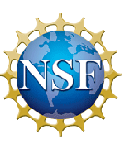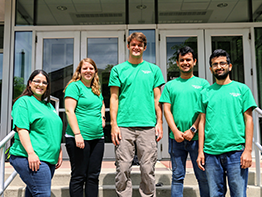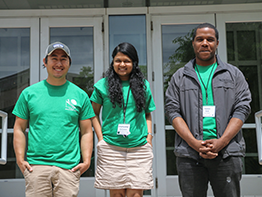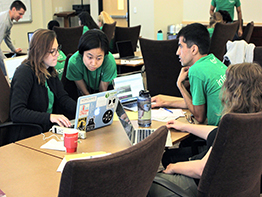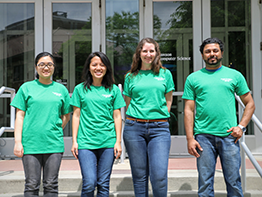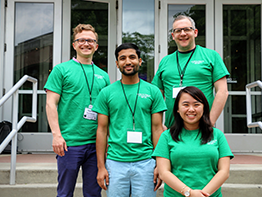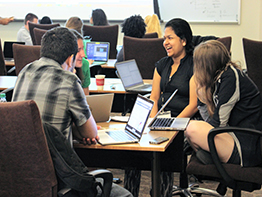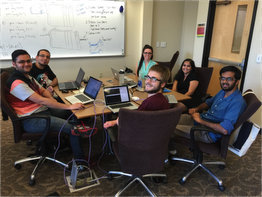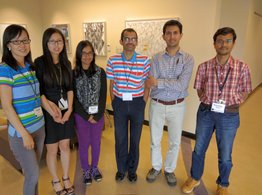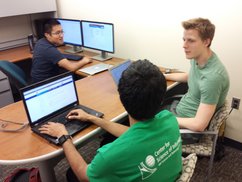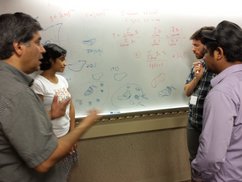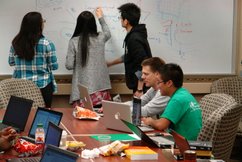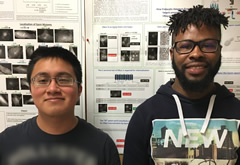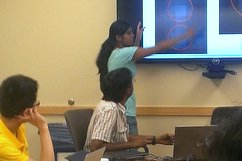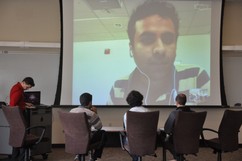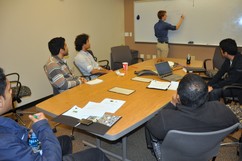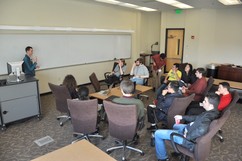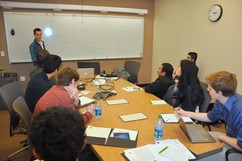Interdisciplinary Student Research Collaboratory
Through a series of annual experiential workshops started in 2012 focused on professional development in team-based research, skills in data science, interdisciplinary experience, and grant writing, the CSoI Information Frontiers Learning Initiative has facilitated and supported 20 multi-institutional research teams with members representing 30 universities, and 26 distinct departments, achieving a goal overall of 1:1 female to male ratio of participants along with broader participation. These student-led teams continue research collaborations for one to three years with the goal of co-producing results presented to the STEM community. To date, the teams have co-produced 50+ conference posters/presentations and 25+ journal papers. Contact Director of Education, Brent Ladd, for more information.
D2IE Team - "Addressing Digital Divide and Inclusion in Education".
![]()
This unique XPrize Team organizes an educational research and policy student team with undergraduate, graduate, staff, and faculty across three universities and a local government office for the Open Data Insitute's (ODI) education challenge sponsored by Microsoft as a global XPrize Challenge. The team was awarded the top place in the competition in May 2021 and has gone on to produce papers elucidating the problem, and consulting with the Los Alamos National Lab Foundation and New Mexico Broadband Consortium where remote communities with some of the lowest digital opportunity scores in the nation have been hit hard during the COVID pandemic. The primary purpose of the team efforts going forward is to holistically address broadband and digital learning issues in the U.S. through research insights and a theoretical model supporting the digital literacy of primary school students and teachers.
Math-Prep Team - "Implications of Teacher Knowledge and Attitudes: A Cross-National Exploration of Secondary Math Teacher Preparation".
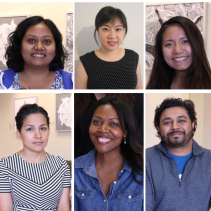
This team brings together two educational psychologists with a physicist/data scientist, a computer scientist, and an environmental scientist to address a systemic problem in U.S. education: Secondary education teacher preparation in math. The U.S. is 39th place world-wide in math achievement. Such outcomes negatively impact the number of U.S. citizens who are well prepared to study and research in the science of information fields and STEM fields in general. Recent studies are showing that there are significant positive relationships between teachers' attitudes toward math and math ability with the resulting math performance of their students. This team's primary goal is to use data-driven approaches to explore STEM teacher preparation and attitudes about math in and across six countries (South Korea, United States, Taiwan, Mexico, Bulgaria, and Germany) and then making this data analysis accessible and digestible for policymakers to improve the fact-based conversation around how best to prepare teachers in STEM fields in the U.S.
Team Information Polarization – “The Polarization of Information on the Web”
This team brings together four computer scientists and electrical engineers to develop a robust method for quantifying the degree of polarization between “camps” on a topic by topic basis via Twitter data. This will allow both researchers and consumers of this media to appropriately describe the current state of discourse on the internet. It can also provide insight into how particular groups of people may be more or less susceptible to polarizing information. And, may shed light on how polarization can spread with particular topics.
Team Forest Ecology – “Identifying Shifts in Forest Communities Using Machine Learning Techniques”
This team brings together three PhD students, one from Forestry and Natural Resources, one from Mathematics, and one from Computer Science and Engineering. The team is focused on developing machine learning methods to better decipher community ecology research, and broaden understanding of the interconnectedness of species across the eastern U.S. The outcomes from this research can be applied for improved forest management decision making, as well as understand the on the ground impacts of climate change on the forest ecosystem.
Codeswitching Triggers Team – “Identification and Analysis of Conversational Codeswitching Triggers”
This team brings together a Center postdoctoral scholar in information theory with two PhD students and two undergraduates, a Channels scholar and National Math Alliance fellow working on new theoretical models and data analysis to better understand the mechanisms of codeswitching between two languages. Little research has been done to date on this subject, and this team's unique interdisciplinary composition and expertise aims to tackle this problem.
Team Cyber-Physical Security – “Vetting the Energy and Security of Smart Buildings with Data Science”
This team brings together three young female scientists (Civil Engineering, Mathematics, and Statistics), with a male PhD candidate in Physics to develop data mining technologies in intelligent building systems and apply them to common cyber-physical infrastructures, which will have a significant influence on system security. The team will develop a model to identify and assess outside “attacks” on the system. Based on this information the team will create an algorithm/system design to apply to smart buildings that will greatly aid in detecting issues and security breaches.
Team Disaster Emergency Data – “Improving the Distribution of Disaster Emergency Assistance Programs in the USA Based on Major Disasters Data Mapping 2008-2017”
This unique team brings together two PhD candidates in Migration Research Social Science, with an Economics major and a Computer Science PhD student. The team aims to develop a systematic understanding of disaster assistance funds allocations that will provide decision-makers with better data, point out discrepancies in assistance provisions, and minimize the inequalities in emergency assistance provisions. These outcomes can lead to improving service provision policy-making.
Diabetes Probability Team
This team brings together a postdoctoral scholar in statistics and medicine, with a PhD candidate in math, an undergraduate National Math Alliance fellow, and an undergraduate physics major to attempt to elucidate and predict hospital readmission for diabetes patients.
Crash Reduction Team
This team combines three PhD students with expertise in civil engineering combined with information theory, and economics, and an undergraduate Channels scholar to better understand interstate highway crashes using data science techniques that will aid in fulfilling the U.S. Federal Highway Vision Zero initiative.
Team Genetics Analysis of Substance Abuse
Team Machine Learning Security
Team Cancer Data
Team Lowe Syndrome
Yeast Algorithms Team
Cell Morphology Analysis Team
Biological Imaging Team
Info-Energy Team
Metabolic Information Team
Random Walks Team
Fresh Boolean Team


